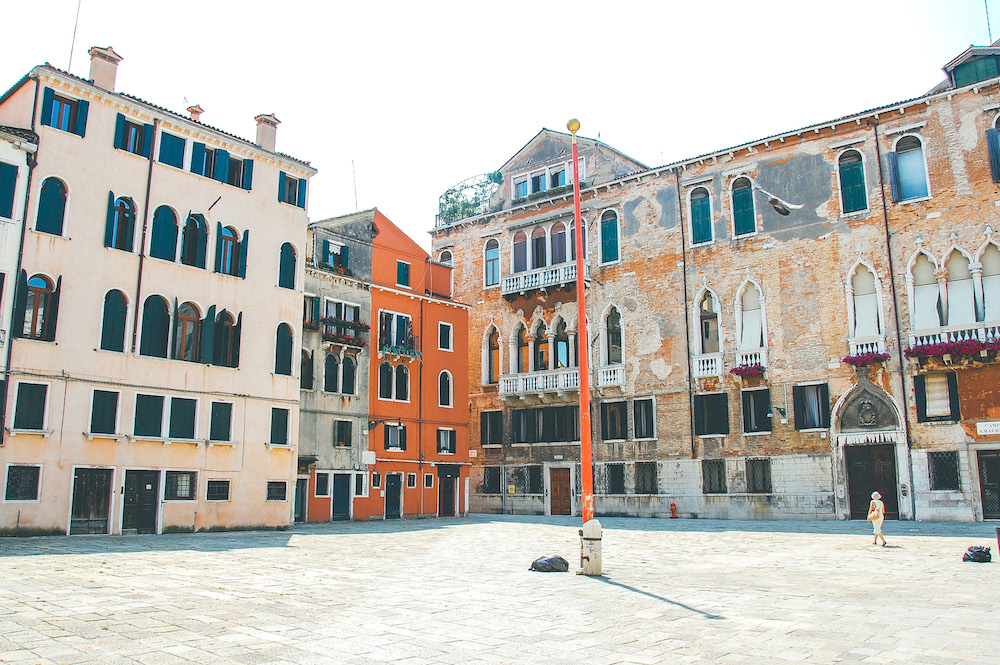Reading
Sinking city: how Venice is managing Europe’s worst tourism crisis. I’ve been lucky enough to visit there a couple of times – oddly within the space of about 6 months – and I’d love to go back… but equally, I’m not sure I could cope with the crowds again. Certainly not now that I’ve got a couple of kids to drag along too. Granted, one of those trips was for a particularly busy event so isn’t wholly representative of tourism throughout the rest of the year, but even on a random June day, it was difficult finding a quiet spot.

Those quiet spots do exist though… I found this one.Currently, about 25 million people visit Venice every year, and if you’ve ever been, you’ll have noticed that the streets and canals there probably aren’t cut out for handling that many people. It’s tricky, because it’s one of those places that I think people should visit, on account of how gorgeous it is, but then if people keep on going there in droves, it’ll obviously get less and less gorgeous. It’s definitely food for thought if you’re planning a trip, but in addition to that, it’s increasingly looking like these sort of decisions might end up out of your tourist hands…
Across Europe, other grassroots groups are also fighting to preserve local cultures. In 2017, the social movement Morar em Lisboa, in conjunction with 30 local associations, wrote an open letter denouncing Lisbon’s excessive dependency on tourism and real estate speculation. And last May, 14 cities and islands – 10 of them Spanish, alongside Venice, Lisbon and Malta – joined forces to form the Network of Southern European Cities against Touristification, arguing that mass tourism causes high rents, pollution, the loss of local shops and the proliferation of low-wage jobs.
Completely coincidentally, this exact dilemma of whether it’s right to overwhelm holiday hotspots in the name of tourism came up on a podcast I caught up with this week whilst…
Listening to
Moral Maze – The Morality of Holidays. It’s an episode from 2017 but it’s still clearly very relevant. So many viewpoints and things to consider around booking holidays, there’s a risk that you’ll listen to this and come away never wanting to go abroad again.
Does that make the decision about where to go on holiday a moral one? Even if we are aware that tourism can have negative impacts, and that our money may not end up in the pockets of the poorest, it’s easy not to think about it. Can’t we just rely on the tour operators to behave ethically? Does it really matter if tourism is trashing the planet as long as we’re spreading prosperity and everyone (or almost everyone) is having a good time? Or do we have a moral duty to think carefully before we book our all-inclusive package holidays? Is it ethically defensible to live it up in a country with a lousy record on human rights? And what about the environmental damage caused by all those air miles?
Personally, I’ll still be travelling when I can, because y’know… it’s fun. And there’s such huge value in it. Only, I do think I’ll endeavour to perhaps travel a little more responsibly where at all possible. I mean, I like to think that I’ve always been mindful of the places I visit and the impact that me going there might have, so I don’t feel like I need to change tact too much there… but there’s definitely something around the amount of flights we – in general – take which you really have to ask, do they need to happen?
Ask me again after I get back from Cambodia this year.
99% Invisible 325: The Worst Way to Start a City. All about the founding of Oklahoma City, which happened basically on 1 single day – April 22nd 1889. There was this huge swathe of land that had been stolen from indigenous peoples – Indian Territory – which became a sort of first come, first served literal actual land grab.
Anyone who wanted to claim land could line up at the border of the Unassigned Lands, which was around 300 miles in circumference. Then, at noon on April 22, 1889, a signal would be given initiating the land grab. Settlers could rush in and hammer down wooden stakes to claim land — up to 160 acres out in the country and smaller patches in designated town sites.
Picture 100,000 people from all over the world rushing over rough ground, vying with each other (and with many, many nefarious cheats) for the best spot. It sounds ridiculous, and you can see why this episode is so named.
But, it all worked out OK in the end for reasons that you’ll have to listen to the episode to find out (citizens committees, street 'jogs’, and a some way down the line, a relocated basketball team). It’s a good one.

